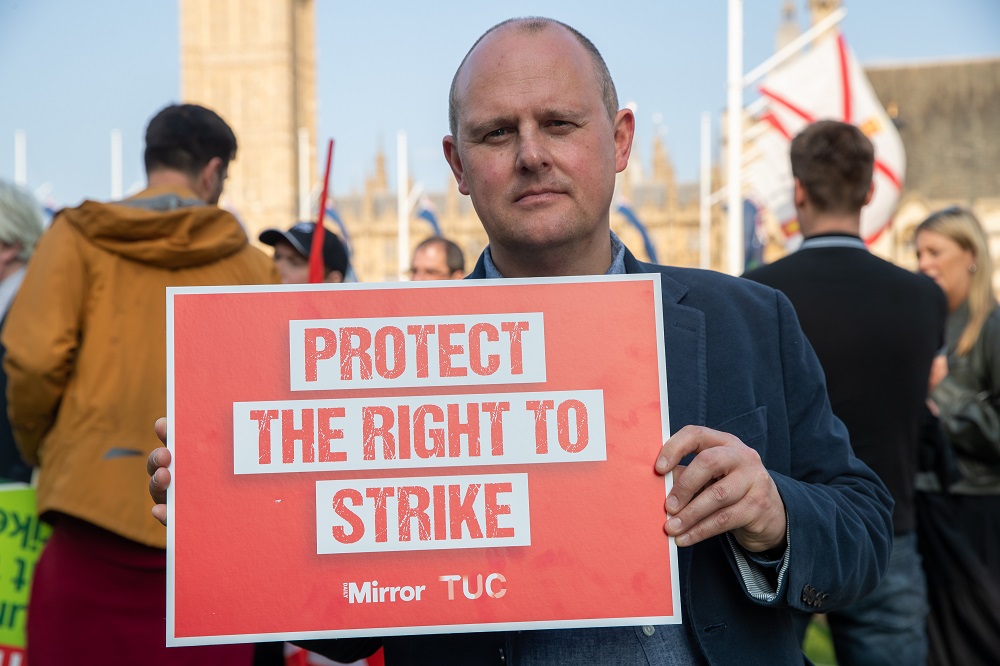Peers inflict further defeats on Government’s controversial strike reforms

The UK Government faces a further wait to implement controversial strike reforms after suffering three defeats in the House of Lords.
Peers voted to amend the Strikes (Minimum Service Levels) Bill to restore measures designed to protect workers and trade unions, plus require the Government to consult further and conduct an impact assessment on the changes.
MPs had previously overturned similar changes but members of the House of Lords pressed ahead with their bid to reinstate their desired wording of the Bill.
The Bill would allow ministers to impose minimum levels of service during industrial action by ambulance staff, firefighters, railway workers and those in other sectors deemed essential.
The proposals are currently in the stage of the parliamentary process known as ping-pong, in which the unelected chamber and the Commons send the Bill back and forth until they can agree the final wording.
Peers joined unions in expressing concerns over the possibility of striking workers being sacked as a result of the Bill.
The Lords voted 180 to 150, majority 30, in favour of an amendment seeking to ensure workers cannot be sacked if they fail to comply with a work notice on strike days.
Protected
Labour’s Baroness O’Grady of Upper Holloway, a former TUC general secretary, said: “This amendment seeks to uphold a principle long-established in British law that workers on strike are protected against the sack.”
She added: “My new amendment returns to the core concern that striking workers, selected by the employer they are striking against, can be forced to work or face the sack.
“Remember this legislation would unilaterally change the employment contracts potentially of millions of people and all through secondary legislation, with no proper parliamentary scrutiny.”
Lady O’Grady also said Labour is “100% committed to repealing this bad Bill” if the party takes office.
Government minister Lord Callanan rejected the concerns, saying: “This Bill is not about sacking workers nor is it about forced labour, which is frankly a ridiculous exaggeration.
“It simply equips employers to manage instances of non-compliance within the work notice.
“That is exactly the same situation as any other strike action that is not protected under existing legislation.
“And to be clear, under the original drafting of the Bill, an employee who went on strike contrary to being named on a work notice would only lose their automatic protection for unfair dismissal provided they are notified in advance of the requirement for them to work and that they must comply with the work notice.
“We would expect that employees would be told if they are required to work, and in that case what work they are required to do. In such circumstances it is reasonable that an employer is able, if it wishes, to consider disciplinary action if an individual chooses nonetheless to continue to strike, thereby putting the public at risk.”
Lord Callanan said it is “in the discretion of the employer as to what, if any, disciplinary action” is taken, adding: “The Government expects employers to be fair, to be reasonable and only take this action where it is necessary.”
Conditions
Peers voted 182 to 150, majority 32, in favour of measures which would only allow minimum service regulations to be made once ministers have met a series of conditions, including conducting an impact assessment and holding further consultations.
They also voted 179 to 148, majority 31, in favour of a separate amendment to restore protections for trade unions.
The Bill will return to the Commons at a later stage for further consideration.
Unions have vowed to campaign against the legislation and are expected to mount a legal challenge.
The TUC has estimated that one in five workers could lose their right to strike, and accused Prime Minister Rishi Sunak of attacking workers’ ability to win a fair pay deal in the middle of a cost-of-living crisis.
Ministers argue that the public is entitled to have a minimum level of services during strikes to reduce disruption to their lives.
Support our Nation today
For the price of a cup of coffee a month you can help us create an independent, not-for-profit, national news service for the people of Wales, by the people of Wales.







Perhaps these same ministers should be legally held personally responsible if a minimum standard of living was not achieved and be liable to the same penalties as people who strike would face
Thank goodness we have the House of Lords to defend workers’ rights.